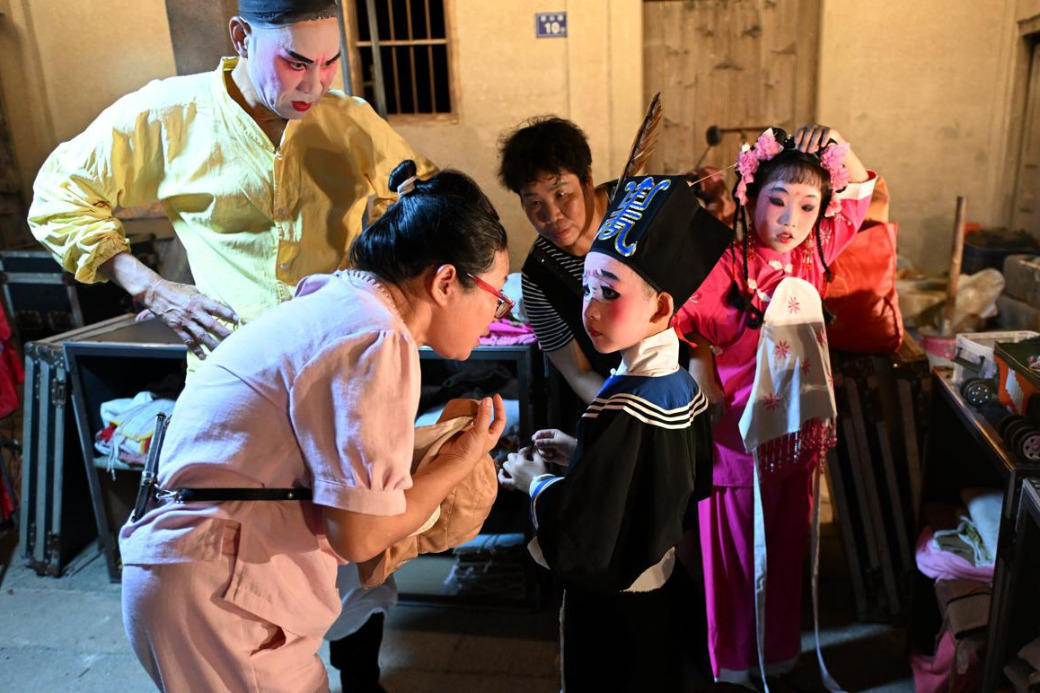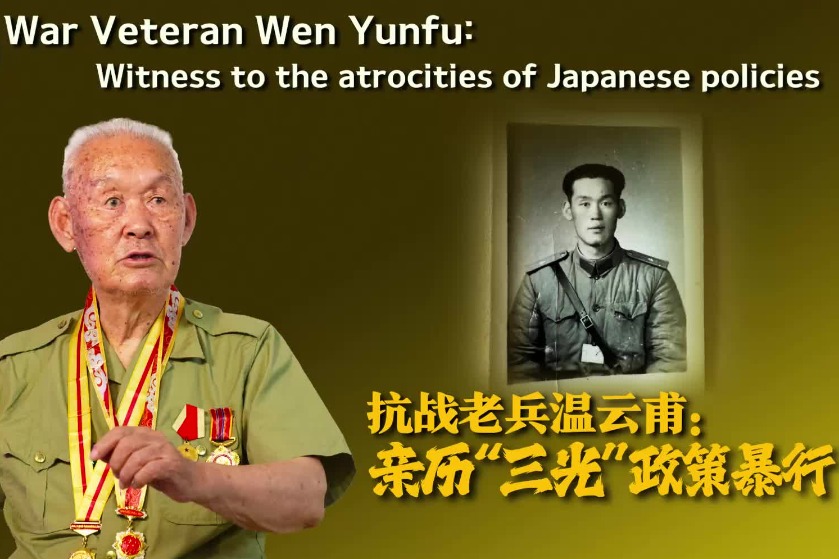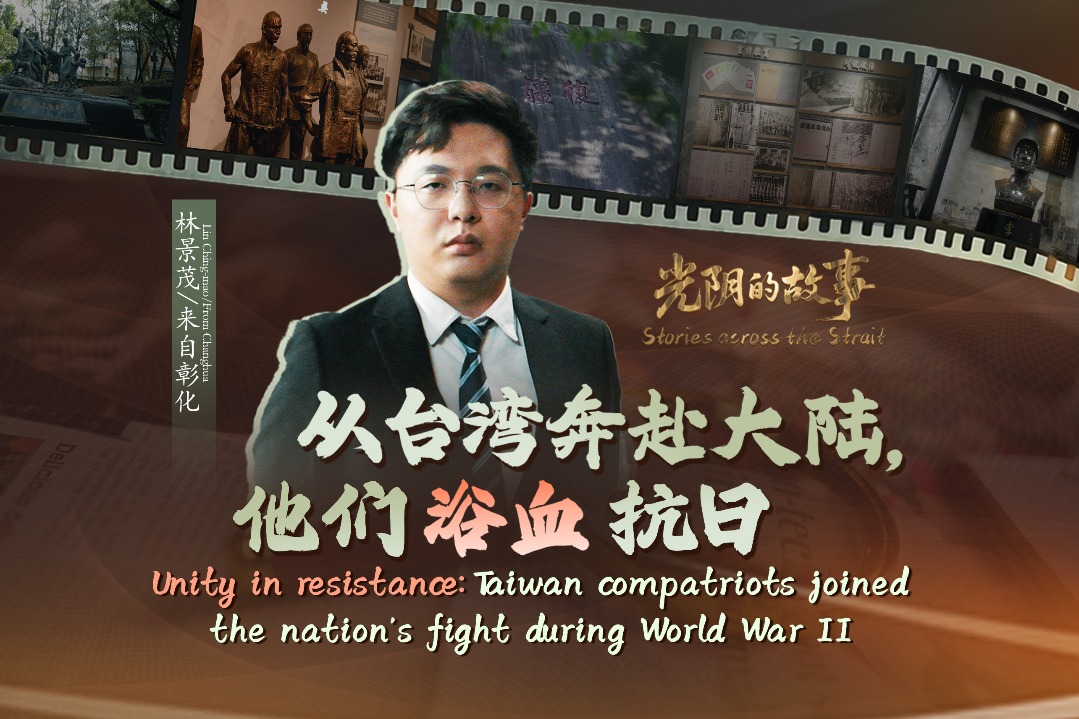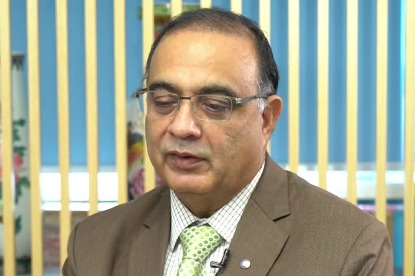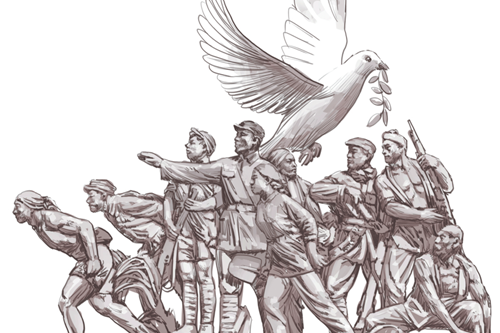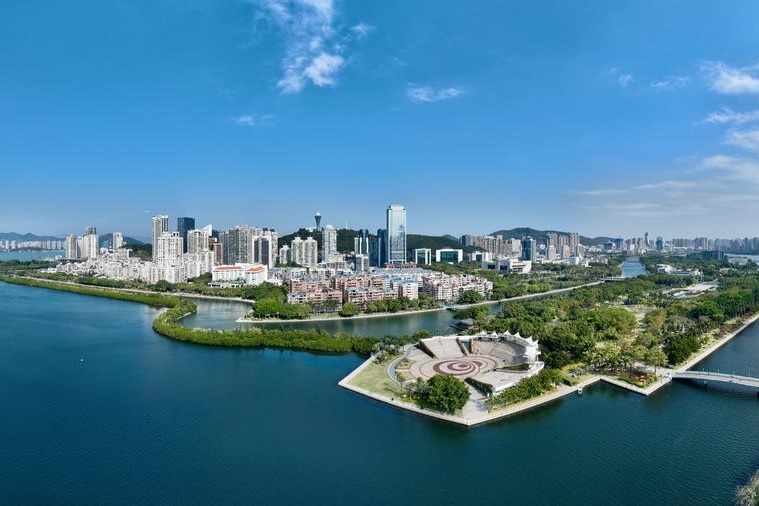From Nepal to Zhengzhou: My journey to mastering interventional radiology


From a young age, I knew that medicine was my calling. Growing up in Nepal, I often accompanied my family to medical appointments, and one such visit remains etched in my memory. I was a child suffering from a chest problem that required radiological imaging. The radiologist, who happened to be a relative, handled the situation with such gentle expertise that it left a lasting impression on me. His demeanor and the way he explained my diagnosis to my parents inspired me to pursue a career in radiology - a field where I could play a crucial role in diagnosing and treating patients.
My medical journey began at Rajshahi University in Bangladesh, where I completed my MBBS and internship between 2009 and 2015. The experience was rigorous, but it solidified my desire to make a meaningful impact in healthcare. Upon returning to Nepal, I was driven by a sense of duty to serve my community, enrolling in a five-year general surgery training program. However, my passion for radiology never waned, and I knew that to truly excel, I needed to specialize in a field that was rapidly advancing: Interventional Radiology.
The turning point came when I was awarded a CGS scholarship through the Chinese Embassy in Nepal to pursue postgraduate studies at Zhengzhou University in China. This opportunity was a dream come true, offering me the chance to learn in a country renowned for its advancements in medical technology and research. During my preparations, I had the chance to meet two recent graduates from the same program, who spoke highly of a renowned professor they had encountered during their studies - Professor Jiao Dechao. They described him as not only a brilliant radiologist but also a mentor who was genuinely enthusiastic about student’s learning, with a heartwarming and friendly demeanor. Hearing their stories, I was determined to study under his guidance, and to my great fortune, I was selected as the only international student to be mentored by him. I am deeply thankful for this opportunity, which has significantly shaped my journey.
Arriving in China was a mix of excitement and apprehension. I was entering a new environment, both culturally and academically. However, my fears were quickly allayed by the warm welcome I received from my professor and my peers. A welcoming party that not only introduced me to the academic setting, but also to the sense of camaraderie that would define my time in China.
One of the first lessons China imparted was the importance of research in clinical practice. Coming from a developing country, I had limited exposure to basic research and animal experiments, both of which are integral to advancing medical knowledge. My professor’s methodical approach to teaching - starting from the fundamentals and gradually moving to complex procedures - was both challenging and rewarding. He didn't just teach, he invested in my growth, often sacrificing his personal time to guide me through the learning process.
Transitioning from a background in surgery to interventional radiology was no easy feat. I had to learn everything from scratch, from understanding radiological imaging to mastering the intricacies of interventional procedures. My professor was instrumental in this journey. He started by teaching me the basics of radiology and gradually introduced me to interventional techniques. His approach was hands-on, with a clear emphasis on practical learning.
One of the most profound experiences during my residency was assisting in robotic-guided surgical procedures. This cutting-edge technology was something I had only read about, and being able to participate in such procedures was both exhilarating and humbling. My professor’s philosophy was clear, to be an effective interventional radiologist, one must not only diagnose but also treat independently. This meant that as I progressed, he would gradually withdraw from hands-on teaching, moving from direct assistance to merely providing verbal guidance, until I was performing procedures on my own.
Despite the challenges, I found myself thriving in this environment. The stereotype that Chinese professors don't engage with foreign students or that Chinese universities are only interested in handing out degrees was quickly dispelled. During my residency here, I have grown in confidence and competence, and I now believe I can compete with graduates from top medical institutions worldwide.
My time in China has been about more than just medical training. It has also been an opportunity to grow personally and culturally. The most inspiring aspects of my residency has been observing how Chinese doctors interact with patients. Their ability to communicate with empathy, even in the most challenging situations has left a lasting impression on me. Whether it was explaining a complex diagnosis or comforting a distressed patient, their approach is always the same - gentle, patient and understanding. This is the kind of doctor I aspire to be.
Outside of my medical career, I have continued to pursue my passion for writing. In Nepal, I worked as a health journalist, a role that allowed me to combine my love for storytelling with my commitment to public health. I have also indulged in my love for motorbikes, participating in several racing competitions. Hiking is another hobby that I cherish, offering a way to connect with nature and clear my mind amidst the rigors of medical training.
As I near the completion of my postgraduate studies, I am filled with a sense of gratitude for the experiences I have had in China. The training I have received at China’s Zhengzhou University, particularly under the mentorship of Professor Jiao Dechao, has not only enhanced my skills as a doctor but also broadened my perspective as a global citizen. I look forward to returning to Nepal, where I hope to apply the knowledge and expertise I have gained to improve healthcare in my community. My journey from Rajshahi to Zhengzhou has been long and challenging, but it has also been immensely rewarding. I am excited to see where this path will lead me next.
The author is a Senior PG resident at the Department of Interventional Radiology, First Affiliated Hospital of Zhengzhou University, and a health journalist.
The views don't necessarily reflect those of China Daily.
If you have a specific expertise, or would like to share your thought about our stories, then send us your writings at opinion@chinadaily.com.cn, and comment@chinadaily.com.cn.

















